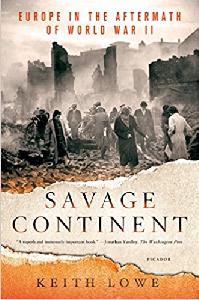

































Summary Copyright © June 1, 2018 by
Robert Wayne Atkins, P.E.
All Rights Reserved.
The following summary is for fair use and educational purposes only.
 Imagine a world without institutions. It is a world where borders between countries seem to have dissolved, leaving a single, endless landscape over which people travel in search of communities that no longer exist. There are no governments any more, on either a national scale or even a local one. There are no schools or universities, no libraries or archives, no access to information whatsoever. There is no cinema or theatre, and certainly no television. The radio occasionally works, but the signal is distant, and almost always in a foreign language. No one has seen a newspaper for weeks. There are no railways or motor vehicles, no telephones or telegraphs, or post office, no communication at all except what is passed through word of mouth. (Page 7)
Imagine a world without institutions. It is a world where borders between countries seem to have dissolved, leaving a single, endless landscape over which people travel in search of communities that no longer exist. There are no governments any more, on either a national scale or even a local one. There are no schools or universities, no libraries or archives, no access to information whatsoever. There is no cinema or theatre, and certainly no television. The radio occasionally works, but the signal is distant, and almost always in a foreign language. No one has seen a newspaper for weeks. There are no railways or motor vehicles, no telephones or telegraphs, or post office, no communication at all except what is passed through word of mouth. (Page 7)
